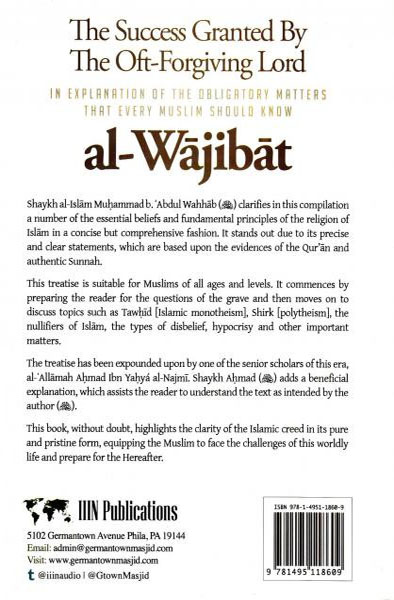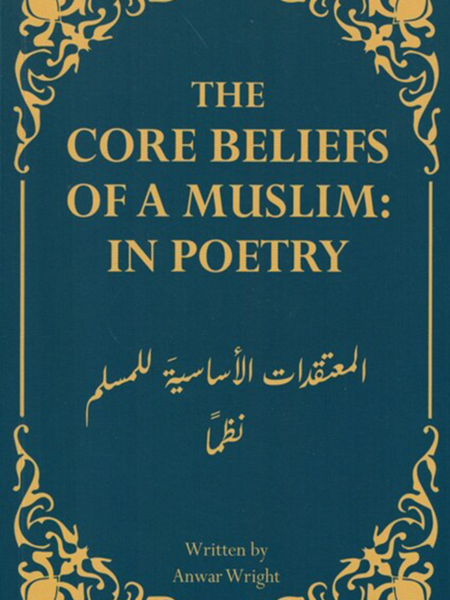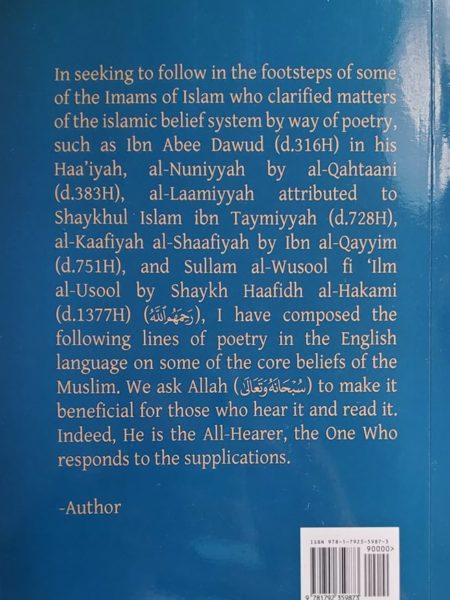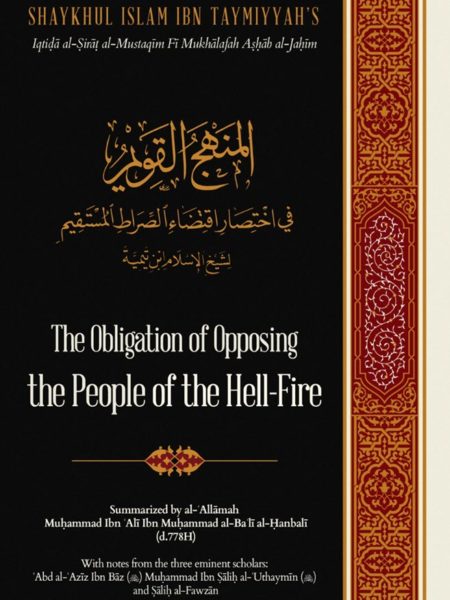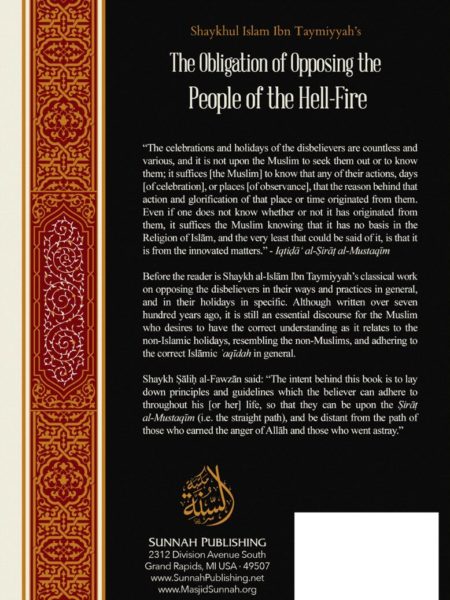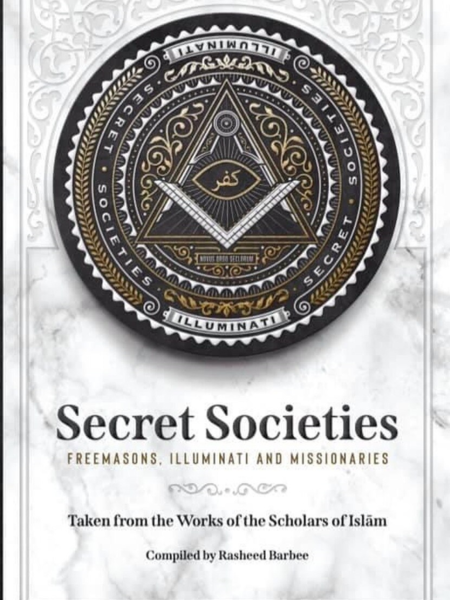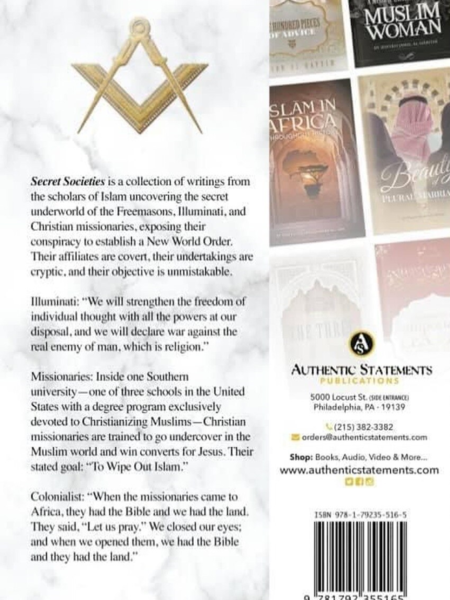-
-
In seeking to follow in the footsteps of some of the Imams of Islam who clarified matters of the Islamic belief system by way of poetry, such as Ibn Abee Dawud (d.316H) in his Haa’iyah, al-Nuniyyah by al-Qahtaani (d.383H), al-Laamiyyah attributed to Shaykhul Islam ibn Taymiyyah (d.728H), al-Kaafiyah al-Shaafiyah by Ibn al-Qayyim (d.751H), and Sullam al-Wusool fi ‘Ilm al-Usool by Shaykh Haafidh Al-Hakami (d.1377H) (May Allah have mercy on him), I have composed the following lines of poetry in the English language on some of the core beliefs of the Muslim. We ask Allah the Most High to make it beneficial for those who hear it and read it. Indeed, He is the All-Hearer, the One Who responds to the supplications.
-
-
Cart


